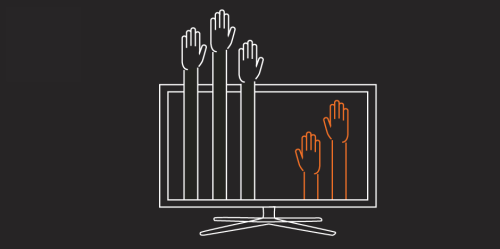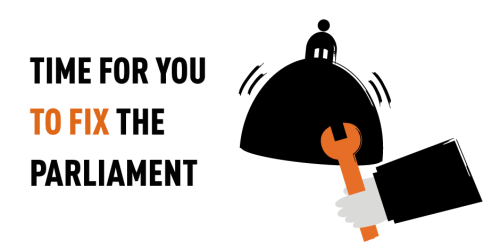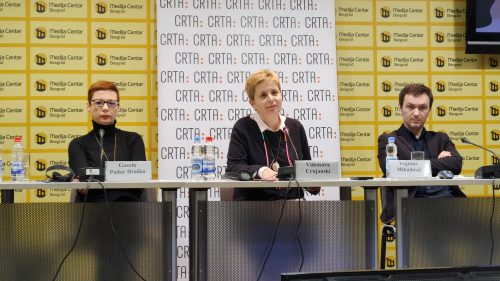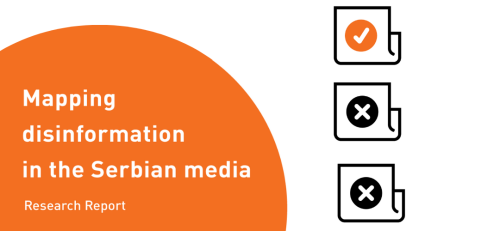Over the past 12 months, the media landscape in Serbia suggests that there is an absolute dominance of the ruling parties, where their average representation in the media in the previous period was held at 95%. With the end of the election campaign, the representation of the opposition in the media decreased significantly. The considerably…
Latest Updates
The media play a significant role in shaping our attitudes, informing us about current events, and influencing our perceptions of reality. Nevertheless, measuring and assessing the significance of individual media outlets poses a considerable challenge for all stakeholders who are interested in this data. The traditional approach to measuring the importance of individual media has…
Are you passionate about fostering democracy? Crta seeks a highly analytical and creative individual to spearhead our parliamentary program. Bring your innovative ideas to life and play a pivotal role in strengthening democratic institutions in Serbia. As our Parliamentary Program Coordinator, you will: Expertly manage and coordinate multidisciplinary projects and initiatives; Leverage your in-depth research,…
The citizens of Serbia have no idea what could be the ideal solution for the Kosovo problem or the realistic outcome of the negotiations – the results of the public opinion survey conducted by Crta at the end of February and the beginning of March show. Their hearts are turned towards Russia and their wallets pointed to the West, meaning there are no major changes in public opinion relating to the perception of Serbia’s foreign policy and the Kosovo issue.
The average citizen of Serbia is informed about the war in Ukraine primarily through the most influential and pro-government mainstream media, reinforced with social media algorithms to spread manipulative, biased, propagandistic and conspiratorial content. Russian propaganda, backed by unethical and unprofessional reporting of local media, fits like a puzzle piece into the already established pro-regime and anti-Western manipulation tactics used for years in Serbia.
Citizens’ trust in civil society organizations is growing – this is one of the findings of the public opinion survey “Audit of political engagement in Serbia 2022” presented by Crta on the occasion of the World NGO Day. Almost 50 percent of respondents now believe that the civil sector protects the public interest, while ten years ago, only a third of citizens shared this opinion.
The current situation in Serbian media is characterized by information disorder with extreme propaganda and manipulation of facts. In this analysis, we tried to uncover the main mechanisms, scope and nature of disinformation in Serbian media. Spread of disinformation in Serbian media Our main findings show that, numerically, disinformation overpowers the news. More precisely, …
The media landscape in Serbia is in a state of expansion with numerous non-transparent areas of the media scene, particularly related to media ownership and financing. A continual need for indicators and evidence that are essential for the debate on the extent to which the media market in Serbia supports values of democracy and pluralism, and functions according to the principles of the rule of law, is recognised.
The citizens of Serbia are less and less interested in Serbia’s future in the EU, while the attitude towards the war in Ukraine shifts. These are the results of CRTA’s field research of public opinion, done from September 24th to October 3rd. More than a third of citizens (36%) would be indifferent towards accession to the EU, while 28% would be glad, and 33% would be concerned. An even bigger percentage, 43%, would be indifferent towards rupture of EU accession negotiations.

















